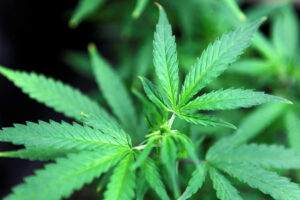BANGKOK — Thailand will ban recreational use of marijuana by the end of this year but continue to allow its use for medical purposes, the health minister told Reuters in an interview.
After Thailand became the first country in Southeast Asia to free up medicinal use in 2018, and then recreational use in 2022, tens of thousands of cannabis shops have sprung up in an industry projected to be worth up to $1.2 billion by next year.
Critics say piecemeal rules were rushed out and adopted within a week of decriminalization, and the government has drafted a new law to regulate cannabis use that is expected to take effect by yearend.
The draft bill will go to cabinet for approval next month before heading to parliament to be passed before the end of the year, Health Minister Cholnan Srikaew said.
“Without the law to regulate cannabis it will be misused,” Mr. Cholnan said on Wednesday, referring to recreational use.
“The misuse of cannabis has a negative impact on Thai children,” he added. “In the long run it could lead to other drugs.”
The previous government had failed to push legislation through parliament before the general election of last May, leaving Thailand without an umbrella law to regulate its use.
Cannabis shops that operate illegally will not be allowed to continue, while home-grown cannabis will also be discouraged, added Mr. Cholnan, who put the number of legally registered shops at 20,000.
“In the new law, cannabis will be a controlled plant, so growing it would require permission,” he said. “We will support (cannabis cultivation) for the medical and health industry.”
The draft law specifies a fine of up to 60,000 baht ($1,700) for recreational use, while those selling cannabis for such use and participating in advertisement or marketing of buds, resin, extract or smoking devices face jail terms of up to a year, or a fine of up to 100,000 baht ($2,800) or both.
It also toughens punishment for cannabis farming without a license, with jail terms ranging from one to three years and fines from 20,000 baht ($560) to 300,000 baht ($8,000). Import, export, cultivation and commercial use of cannabis will also require permits now, the minister added.
The government, recognizing the economic benefit of the cannabis industry, would give businesses time to adjust to the new regulation, Mr. Cholnan said.
Such shops could operate until their licenses expire and convert to legal cannabis clinics if they follow the new rules, Mr. Cholnan said, adding that the new regulation would have no impact on tourism. — Reuters

